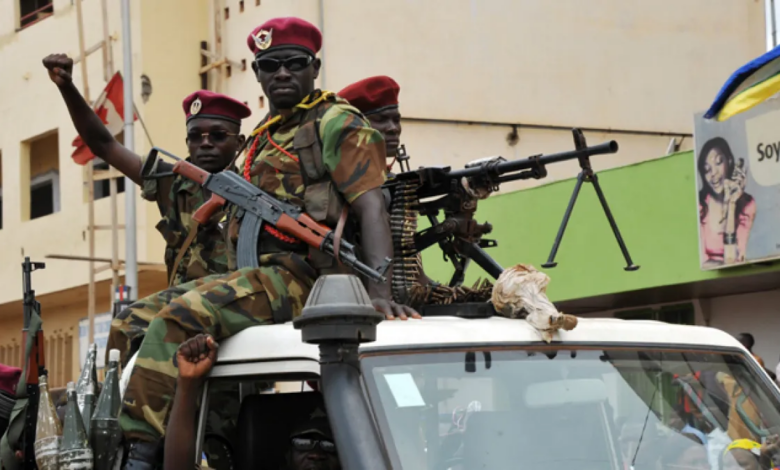Rebel Fighters Kill Five Soldiers in Central African Republic
Military sources say the corpses of the dead soldiers would be transferred to Bangui for honours before being taken to their various places of origin for final burial.

Five soldiers, including a lieutenant, of the Central African Republic (CAR), were killed on Monday, Feb. 3, during an attack in Bodjomo, a village in the north of Bangui. Three other soldiers were also wounded, with one of the rebels killed.
The rebel fighters are with the Coalition of Patriots for Change, an anti-government armed group, according to the Associated Press. The armed group also attacked a military outpost early Monday in the village of Kouki in the northwestern prefecture of Ouham, with several soldiers injured.
The latest attack reveals the deplorable conditions in which the soldiers operate. Many times, soldiers are deployed without adequate equipment or tanks and they are constrained to use motorbikes belonging to individuals during military operations, dangerously exposing them to ambushes by armed men.
“Our soldiers are exposed to death. How can they send soldiers to fight against armed groups without secure means of transport and no appropriate protection equipment?” a sub-officer told HumAngle.
The Ministry of National Defense and Reconstruction of the Army, led by Claude Rameaux Bireau is yet to comment on the deadly attack against the army.
“Despite repeated promises about the modernisation of the army by President Faustin Archange Touadera, the Central African Republic army continues to operate with rudimentary means leading to heavy death tolls in their mission to secure the national territory,” said Polycarpe Bibeguelle, a political analyst.
Military sources say the corpses of the dead soldiers would be transferred to Bangui for honours before being taken to their various places of origin for final burial.
The Central African Republic has been embroiled in a complex and tumultuous conflict since 2013, when a predominantly Muslim rebel coalition, known as Séléka, seized power and ousted then-president François Bozizé from office.
This marked the beginning of a protracted and bloody conflict that has ravaged the country. The Séléka coalition, which was made up of various rebel groups, accused the government of failing to abide by previous peace agreements, and their takeover was met with resistance from Christian militias, known as Anti-balaka.
The conflict has been fueled by a mix of religious, ethnic, and economic tensions, with the Séléka rebels, who are mostly Muslim, pitted against the Anti-balaka militias, who are predominantly Christian. The situation has also been complicated by the involvement of external actors, including neighbouring countries and international powers.
Havent detected content to summarize.
Support Our Journalism
There are millions of ordinary people affected by conflict in Africa whose stories are missing in the mainstream media. HumAngle is determined to tell those challenging and under-reported stories, hoping that the people impacted by these conflicts will find the safety and security they deserve.
To ensure that we continue to provide public service coverage, we have a small favour to ask you. We want you to be part of our journalistic endeavour by contributing a token to us.
Your donation will further promote a robust, free, and independent media.
Donate HereStay Closer To The Stories That Matter




